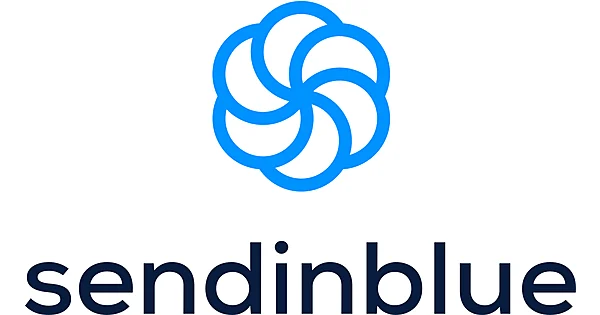Welcome to the ultimate showdown between two email marketing giants: SendGrid and SendinBlue. As we step into 2024, it’s crucial to pick a tool that not only sends emails but elevates your marketing game. Whether you’re a small business owner, a bustling startup, or a large corporation, this comparison is your go-to guide for making an informed choice. So, let’s dive right in!
| SendGrid | SendinBlue |
|---|---|
 |  |
| G2 Score – 4.0 out of 5 stars | G2 Score – 4.5 out of 5 stars |
| TrustRadius Score – 7.6/10 | TrustRadius Score – 8/10 |
Ease of Use: User Interface and Setup
Getting Started: First Impressions Count
The first aspect we’ll explore is the ease of use, focusing on user interface and setup. Why? Because a tool can have all the fancy features in the world, but if it’s a headache to use, it’s not worth your time.
SendGrid: A Developer’s Paradise?
Starting with SendGrid, the platform greets you with a clean, minimalistic dashboard. It’s sleek, no doubt, but here’s the kicker: it’s very developer-centric. If you’re someone who loves to tinker with code and APIs, you’ll feel right at home. SendGrid offers extensive customization options, allowing you to tailor everything to your exact needs.
Setting up involves a few technical steps like domain authentication and API integration, which might be daunting for the non-tech-savvy. However, for the coders and tech enthusiasts, it’s like being a kid in a candy store. You get to control every aspect of your email marketing from the ground up.
SendinBlue: The Friendly Neighbor
On the flip side, SendinBlue takes a more user-friendly approach. As soon as you sign up, you’re welcomed by an intuitive interface that’s easy on the eyes and simple to navigate. It’s designed with the non-technical user in mind.
Setting up is a breeze. You’re guided through each step with helpful tips and clear instructions. Within minutes, you can start creating campaigns, even if you’ve never dabbled in email marketing before. It’s like having a friendly guide by your side, making sure you don’t get lost.
Customization and Templates: Freedom vs. Guidance
Both platforms offer a range of templates, but their approach to customization is where they truly differ.
SendGrid: Unleash Your Creativity
SendGrid’s template engine is robust, giving you the freedom to create highly customized emails. You can start from scratch or modify existing templates using their code editor. It’s powerful, but keep in mind, you’ll need HTML and CSS knowledge to make the most of it.
SendinBlue: Templates Galore
SendinBlue, meanwhile, offers a more guided experience. Their drag-and-drop editor is a game-changer for those who aren’t code-savvy. You can choose from a plethora of pre-designed templates, tweaking them to your heart’s content without touching a line of code. It’s all about ease and simplicity.
Deliverability: Ensuring Your Emails Hit the Inbox
Why Deliverability Matters
Next up, let’s talk about deliverability. It’s the backbone of email marketing. After all, what good is a beautifully crafted email if it ends up in the spam folder? Both SendGrid and SendinBlue promise great deliverability, but let’s see how they actually stack up.
SendGrid: The Reputation for Reliability
SendGrid has built a reputation for its strong deliverability rates. It’s not just about sending emails; it’s about sending them to the right place. With its advanced infrastructure and dedicated IP options, SendGrid is like a seasoned postman who knows exactly how to get your mail to the doorstep.
They provide detailed analytics and real-time feedback, helping you track your email performance. Plus, with their proactive monitoring and ISP (Internet Service Provider) outreach, they work tirelessly to maintain healthy sender reputations.
SendinBlue: The Smart Algorithm Whisperer
SendinBlue takes a slightly different approach. They focus heavily on optimizing email content for better inbox placement. With their AI-driven algorithms, they analyze your emails’ content and suggest tweaks to improve deliverability.
What’s more, SendinBlue’s machine learning capabilities ensure that your emails are sent at the optimal time, maximizing the chances of them being opened. They also offer dedicated IP addresses, but their standout feature is their focus on content optimization and smart sending times.

Related: Check out our free SEO suite

Authentication and Compliance: Staying on the Good Side
The Importance of Playing by the Rules
In the world of email marketing, staying on the right side of authentication and compliance isn’t just important – it’s essential. Both SendGrid and SendinBlue recognize this and have built their platforms to ensure that emails not only reach their destination but also maintain the integrity and reputation of the sender.
SendGrid: Fortifying Your Email’s Identity
SendGrid has always emphasized the importance of email authentication. It’s like having a digital passport for your emails, ensuring they are recognized as legitimate and trustworthy by email service providers (ESPs). They offer a suite of authentication tools, including SPF (Sender Policy Framework), DKIM (DomainKeys Identified Mail), and DMARC (Domain-based Message Authentication, Reporting, and Conformance). These tools act like digital signatures, vouching for the authenticity of your emails and significantly reducing the chances of them being marked as spam.
In addition to authentication, SendGrid places a strong emphasis on compliance. They keep a vigilant eye on evolving email regulations, such as GDPR (General Data Protection Regulation) in Europe and CAN-SPAM in the United States. By staying compliant, they not only protect their users from legal pitfalls but also maintain a trustworthy relationship with ESPs, ensuring better email deliverability.
SendinBlue: Navigating the Compliance Landscape
SendinBlue approaches authentication and compliance with a similar level of seriousness. They provide robust tools for authentication, ensuring that your emails are verified and secure. This is crucial in building and maintaining a strong sender reputation, which in turn affects email deliverability.
But where SendinBlue really shines is in its approach to compliance. Recognizing the diverse and ever-changing nature of email regulations across different regions, they offer tailored guidance and features to ensure that your email campaigns comply with the relevant laws. Whether it’s GDPR in Europe, CASL in Canada, or any other regulatory framework, SendinBlue has made it a point to adapt and provide tools that align with these requirements. This includes features for managing consent and ensuring subscriber privacy, which are key components of many email regulations.
Pricing
SendGrid
- Free Plan: Offers up to 100 emails per day forever.
- Essentials Plan: Starting at $14.95 per month for 50,000 emails per month, with no daily sending limit. Includes basic email features.
- Pro Plan: Starting at $89.95 per month for 100,000 emails per month, includes advanced features like dedicated IP addresses and sub-user management.
- Premier Plan: Custom pricing for high-volume senders needing advanced features and customization.
SendinBlue
- Free Plan: Includes unlimited contacts with 300 emails per day.
- Lite Plan: Starting around $25/month, this plan includes no daily sending limit and is suitable for smaller businesses.
- Premium Plan: Starting from around $65/month, offering advanced features like marketing automation, Facebook ads, landing pages, and multi-user access.
- Enterprise Plan: Custom pricing with advanced and custom features, dedicated account manager, and priority support.
Features and Functionality: The Power Behind the Email
Broadening the Scope Beyond Email
When it comes to features, it’s not just about sending emails anymore. Today’s email marketing tools need to offer a suite of features that cater to diverse marketing needs. Let’s see how SendGrid and SendinBlue stack up in this department.
SendGrid: More Than Just Email
SendGrid has evolved significantly over the years. Initially focused on transactional emails, it now offers a broad range of features. This includes email marketing campaigns, automated sequences, and advanced analytics.
One of the standout features is its powerful API, which allows seamless integration with your existing systems. This is particularly beneficial for businesses with custom workflows or those who rely heavily on automation.
SendinBlue: The All-in-One Marketing Toolkit
SendinBlue takes the concept of features a step further. It positions itself as an all-in-one marketing platform. Alongside its email marketing capabilities, it offers SMS marketing, chat, CRM functionality, and even Facebook ads integration.
For businesses looking for a comprehensive tool that covers multiple aspects of digital marketing, SendinBlue is a strong contender. Its ability to unify various marketing channels into one platform can be a game-changer, especially for small to medium-sized businesses.
Automation: The Future of Email Marketing
Streamlining Campaigns for Efficiency and Effectiveness
In the digital age, automation in email marketing is not just a luxury; it’s a necessity. Both SendGrid and SendinBlue have embraced this trend, incorporating automation in ways that transform how businesses approach their email strategies.
SendGrid: Crafting Sophisticated Email Journeys
SendGrid’s approach to automation is all about giving users the power to craft sophisticated, customized email journeys. Imagine being an architect, where each email campaign is a blueprint for a unique customer journey. SendGrid provides the tools to construct these journeys, with the ability to tailor each step based on user behavior, engagement, and other triggers.
Their automation platform is designed for those who love to delve into the details. You can create complex sequences that respond dynamically to how recipients interact with your emails. For instance, if a user clicks on a specific link in an email, you can set up an automated response that sends a follow-up email tailored to that action. This level of customization allows businesses to create highly personalized and responsive email campaigns, fostering better engagement and stronger customer relationships.
SendinBlue: Democratizing Email Automation
While SendGrid offers a playground for customization, SendinBlue takes a slightly different route, focusing on accessibility and ease of use in automation. They provide a visual workflow editor, a tool that allows you to create automated email sequences without needing a deep understanding of the technical intricacies.
This approach is akin to having a smart assistant who takes care of the complex parts, letting you focus on the creative side. You can set up automated campaigns that trigger based on predefined conditions such as user sign-ups, purchase history, or engagement levels. SendinBlue’s strength lies in its ability to make automation intuitive and accessible, enabling even those new to email marketing to set up effective campaigns quickly.
Empowering Businesses with Targeted Communication
Both platforms understand that the power of automation lies in its ability to facilitate targeted and timely communication with customers. By automating certain aspects of email marketing, businesses can ensure that their messages reach the right people at the right time, without the need for constant manual intervention.
SendGrid’s customizable automation is ideal for businesses that have specific, detailed needs and the resources to develop intricate email sequences. It’s particularly beneficial for larger companies or those with a strong technical team that can fully utilize the depth of SendGrid’s automation capabilities.
On the other hand, SendinBlue’s user-friendly automation tools are perfect for small to medium-sized businesses or those just starting with email marketing. Its straightforward setup process and visual editor make it easy to create effective email campaigns that don’t require extensive technical knowledge.
Conclusion
As we wrap up our deep dive into SendGrid and SendinBlue, it’s clear that both platforms offer robust and unique features tailored to different business needs. The choice between them hinges on what you prioritize for your email marketing strategy.
SendGrid stands out for its highly customizable environment, making it a top choice for those with technical prowess or resources to leverage its sophisticated features. It’s ideal for larger businesses or those who need intricate, personalized email journeys and strong deliverability.
SendinBlue, on the other hand, shines with its user-friendly interface and all-in-one marketing approach. It’s perfect for small to medium-sized businesses or those new to email marketing, offering a wide range of features that are easy to use and effective, without needing deep technical knowledge.
Read Next:
- Crafting Compelling Email Subject Lines: Tips and Tricks for Higher Open Rates
- The Importance of Deliverability in Email Marketing: Ensuring Your Messages Reach the Inbox
- Email Marketing for Events and Webinars: Boosting Attendance and Engagement
- The Role of Mobile Optimization in Email Marketing Success
- Harnessing the Power of Interactive Content in Email Campaigns






















Comments are closed.